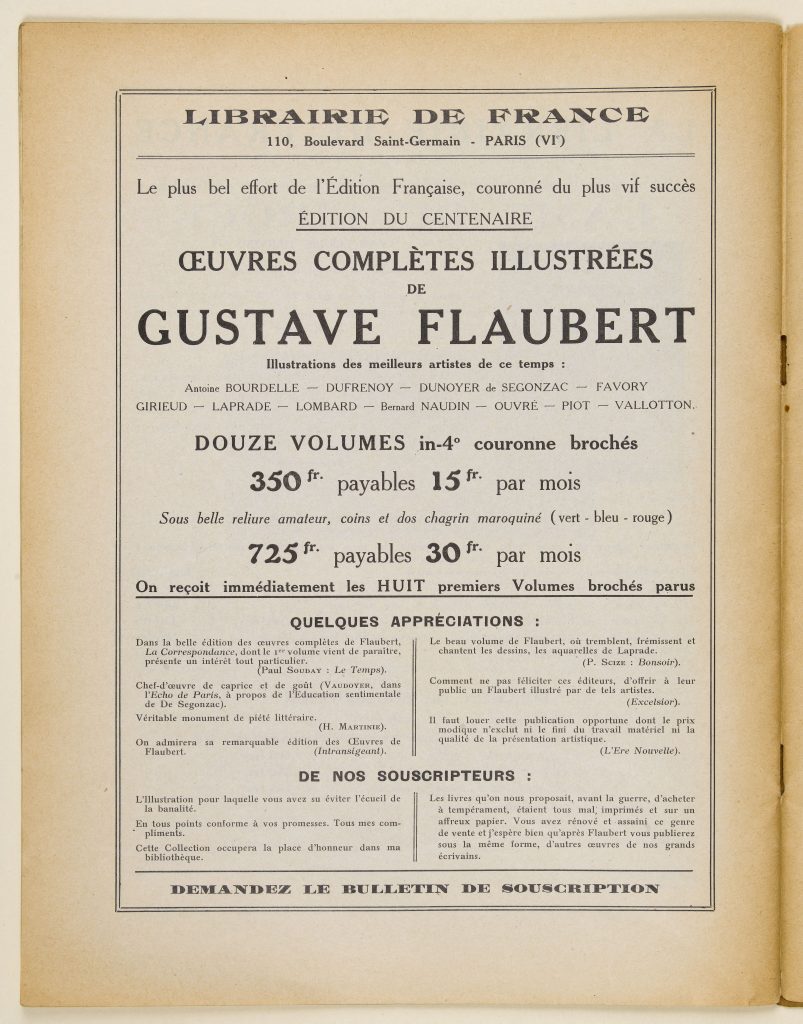
Flaubert, who was younger than Balzac, never met the latter. But critics concur in finding a continuity between the two writers. Should Flaubert be considered the literary son of the La Comédie humaine’s author?
George Sand seems also to support this relationship between the two, in her comment on the reception of Flaubert’s masterpiece, Madame Bovary:
‘As soon as this remarkable book appeared, everyone in our little corner of the world, and everywhere, I believe, cried: “Here is a striking and formidable example of the Realist school. Realism must indeed exist, as this is quite new.” But upon reflection, we found that it was more Balzac (and all the better for its author), a Balzac from which every concession to novelistic indulgence had been expunged, a bitter, sorrowful Balzac, a distillate of Balzac, one might say.’
It is true that the two writers do share a number of traits; both incredibly hardworking, they were also similarly interested in conducting a sociological analysis of their contemporaries. But Flaubert, following the publication of Madame Bovary, was impatient with such comparisons. ‘As for Balzac, my ears are getting blisters from hearing about him. I’m going to make triple sure I drop something spicy and colourful next, so the comparison won’t be so easy. They’re stupid, going on about social observations! I don’t give a damn about that!’ he wrote to Jules Duplan on 28 May 1857.
He would never cease fending off this comparison, even
‘I have just finished the letters of Balzac and concluded that he was a good man. And very lovable. But what an obsession with Money! And what little consideration for Art! Have you noted that he doesn’t mention the word once? His quest was for fame and not for Beauty. And, he was a Catholic, a legitimist and a landowner with ambitions of becoming a Deputy and Academician. Most of all—ignorant empty-headed fool and bumpkin to the marrow that he is—he’s a glutton for luxury. His literary hero is Sir Walter Scott! In short, for me, he is a great man, but only second division.’
Gustave Flaubert, letter to Edmond de Goncourt, 31 December 1876
